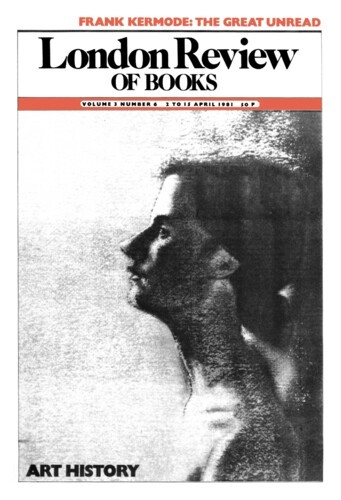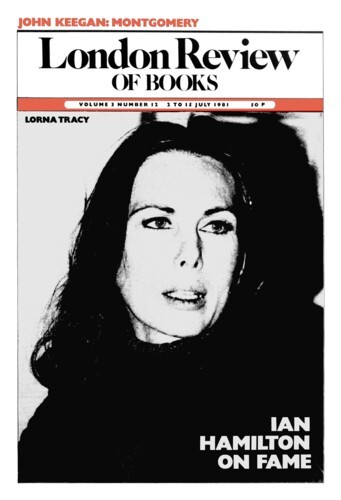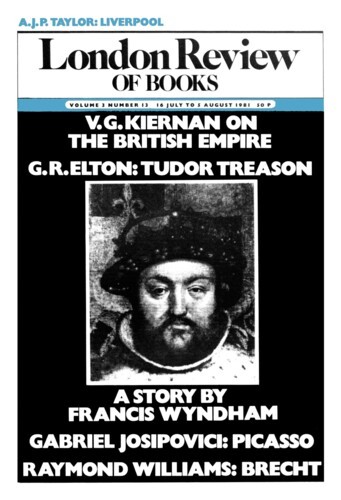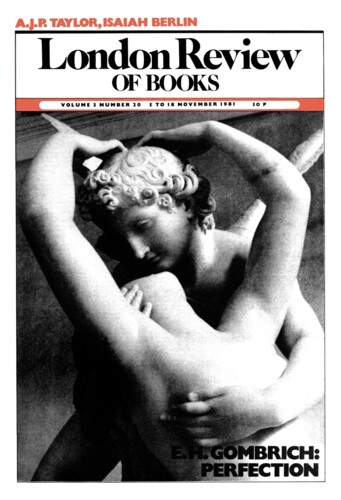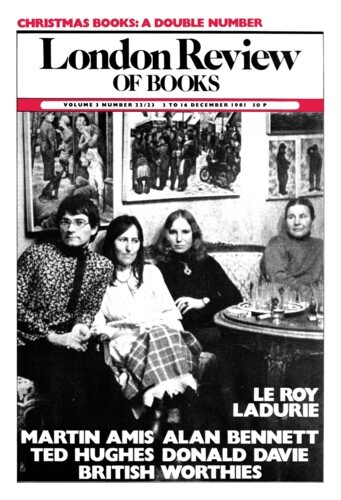Owning Mayfair
David Cannadine, 2 April 1981
When, in The Importance of Being Earnest, Lady Bracknell imagined the terrible spectre of social revolution, she spoke feelingly of ‘acts of violence in Grosvenor Square’. In this, as in her later strictures against ‘the Brighton line’, she demonstrated a sound understanding of the social geography of late 19th-century London. For while Berkeley Square might boast its nightingale, and Belgrave Square was saluted in Iolanthe, neither quite rivalled the cachet of Grosvenor Square, the most glamorous address in London, the social centre and status summit of Mayfair, where the rich, the wellborn and the powerful lived lives of exclusive, glamorous opulence and privileged, aristocratic grandeur. Some indication of Mayfair’s stately, splendid and sumptuous past may be gleaned from the acknowledgements page in this appropriately stately, splendid and sumptuous volume, where names like Abercorn, Derby, Mountbatten, Scarbrough and Wemyss surge before the reader’s eye, in a cascade of coronets.
